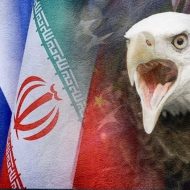At dawn on February 6 two earthquakes with magnitudes of 7.7 and 7.6 9 hours shook Türkiye, centered in the city of Kahramanmaraş. The earthquake also caused vast devastation in Syria. The two countries are lamenting the loss of their people while trying to recover.
The humanitarian dimension of the issue and the aid campaigns were followed all around the world. On the other hand there remains the question of ‘How did Türkiye get to this point?’ This question includes many dimensions, notably the political economy of urban construction, administrative mechanisms and decision-making processes and judicial decisions.
To grasp better the process leading up to the earthquake devastation here we present a compilation of selections from articles by Turkish academics analyzing different aspects of the issue.
1. Political Economy of the Earthquake
Prof. Dr. Çağatay Keskinok:
Türkiye’s economic policies in the 1990s and 2000s, which were based on the liquidation of central planning and privatization, made long-term and state initiatives to reduce earthquake risks impossible from the outset. (Bilim ve Ütopya, Depremi Beklerken Azmanlaşan Kenti Çıkmazı, November 2019)
No planning was carried out while the risks were clearly evident. The most fundamental reason for this is that Türkiye, as a result of the traps set by the World Bank and the IMF, has largely atrophied the planning function of the public sector during the long years of globalization.
Türkiye completely abandoned the regional planning approach it had followed until the 1950s, and to a limited extent in the 1960-70 period, with the liberalism of the 1980s under Turgut Özal’s government and the globalization movement in the 1990s.
The situation in the construction sector in the 2000s can be summarized as follows:
- Providing unlimited opportunities for capital in the face of objective conditions in the regions with well-known earthquake risks
- A development strategy tailored to the rationalities and short-term requirements of the markets.
- As the last link in the chain: incompetent contractors, land speculators, local administrators who abuse their offices.
The deregulation programs, which started with the Turgut Özal era (1983-1991 Prime Minister, 1989-1993 President) and meant the eradication of all kinds of barriers to the capital movements -especially international capital’s- in urban space at all costs, became a matter of existence for the AKP government. (Bilim ve Ütopya, Tayyip’in Kara Ütopyası: Azmanlaşan Kent, March 2014)
Dr. Çağrı Sağlam:
After the 2001 crisis, the common characteristic of the economic policies in Türkiye is precisely hand valuable public spaces and dwellings belonging to laborers who are incapable of acting together to the capitalist class on a silver plate. (Bilim ve Ütopya, Tayyip’in Kara Ütopyası: Azmanlaşan Kent, March 2014)
The state-finance-capital trio freely seizes the public spaces on the one hand, and private dwellings on the other by means of control over the legislative and executive powers (including law enforcers), and thereby creates profitable spaces either by burdening low and middle-income people with high amounts of debt or by displacing them from the cities.
2. Administrative Aspects
After 1980, the regulations in Turkish cities -the ideological framework of which was drawn by the World Bank-originated concepts of “competing cities”, “locality” and “localization”- led to the increase in the powers of local administrations regarding zoning and thus the problem of excessive amount of zoned areas. (Bilim ve Ütopya, Tayyip’in Kara Ütopyası: Azmanlaşan Kent, March 2014 — Prof. Dr. Çağatay Keskinok)
Local administrations, who wanted to attract capital to the region, supplied zoned areas far in excess of the needs and expectations. Most urban plans prepared in this period did not have any population estimation and projections. (Bilim ve Ütopya, Tayyip’in Kara Ütopyası: Azmanlaşan Kent, Mart 2014 — Prof. Dr. Çağatay Keskinok)
3. Laws and TOKI
The amendment to the Land Registry Law No. 2644, which paved the way for the sale of real estate to foreigners, fueled urban transformation to ensure a diversified supply of real estate for global capital. Law No. 6366 is an instrumental regulation that centralizes enormous powers to confiscate public lands, immovable properties, housing of local communities, military areas, pasture and forest areas, to open these lands for zoning and give exclusivity to whomever pleased. (Bilim ve Ütopya, Depremi Beklerken Azmanlaşan Kenti Çıkmazı, Kasım 2019 — Pınar Ertan, Doctoral Student in Department of Urban and Regional Planning in Middle East Technical University (METU))
The provision of various privileges to the private sector through the Mass Housing Administration (TOKİ) results in high-rise buildings on the one hand and slums on the other, creating social segregation and spatial differentiation in urban space. These contrasts reproduced through an urban transformation process devoid of any planning also increase the gap between the disaster risks faced by the poor and the wealthy. (Bilim ve Ütopya, Depremi Beklerken Azmanlaşan Kenti Çıkmazı, Kasım 2019 — Pınar Ertan, Doctoral Student in Department of Urban and Regional Planning in Middle East Technical University (METU))
In the 2002-2013 period, the main instrument of public investment was the construction sector in general and the Mass Housing Administration (TOKİ) in particular. In addition, just as the Enclosure Laws and the Enclosure Movement in England during the transition from feudalism to capitalism aimed to ensure capital accumulation by dispossessing the peasant class, the “Law on the Transformation of Areas under Disaster Risk” was enacted in Türkiye to serve capitalism’s aim to redistribute the profit serve capitalism’s aim of maximizing profit and rent by dispossessing the property-owning urban proletarian class. (Bilim ve Ütopya, Tayyip’in Kara Ütopyası: Azmanlaşan Kent, March 2014 — Dr. Çağrı Sağlam)
Established in 1984, TOKİ was created to meet the housing needs of low-income families. It is sufficient to look at the summary of the production report dated 31.01.2014 to see the extent TOKİ has reached today. According to the report, the projects that have been completed or are in the protocol phase are as follows: 618,361 houses, 499 shopping malls, 341 police stations, 492 mosques, 15 stadiums, 951 schools, 13 universities, 975 sports halls, 152 dormitories, 237 hospitals, 94 health centers and 109 public service buildings. A total of 62 billion progress payments were calculated for these projects, of which 37 billion were paid. The balance sheet and statement of profit and loss of such a huge institution is supposed to be transparent, but TOKİ has been immunized from the scrutiny under the Public Fiscal Management and Control Law placed under the responsibility of the Prime Ministry High Council functioning under the Prime Ministry. (Bilim ve Ütopya, Tayyip’in Kara Ütopyası: Azmanlaşan Kent, March 2014 — Dr. Çağrı Sağlam)
TOKİ’s working method is to hand valuable treasury lands, which constitute TOKİ’s own capital, to large construction companies usually through revenue-sharing and then use the revenue from these lands to make housing or social facilities build on worthless lands through tenders awarded to contractors. This way, the government both subjects the big capitalists to itself and creates its very own segment of capitalists. (Bilim ve Ütopya, Tayyip’in Kara Ütopyası: Azmanlaşan Kent, March 2014 — Dr. Çağrı Sağlam)
Having strengthened its hand through TOKİ and the construction sector, the government rapidly enacted the necessary legal regulations. With Decree Laws No. 644 and 648, the government seized the duties and authorities that previously belonged to local administrations such as the zoning approvals, construction and occupancy permits. Professional chambers, which are probably the most important supervisors of the arbitrary decisions of the administration, were completely tied to the administration in a hierarchical order. Even the authority of professional chambers to file lawsuits against the decisions taken by the administration disregarding the public interest was taken from their hands. (Bilim ve Ütopya, Tayyip’in Kara Ütopyası: Azmanlaşan Kent, March 2014 — Dr. Çağrı Sağlam)









Leave a Reply